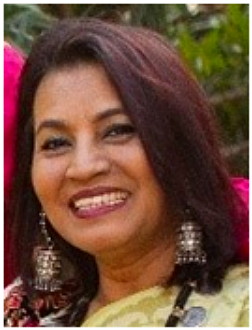 Parenting Children in Australia: Challenges, Joys and Options Shilpi Rahman The beginning
We loved Melbourne. But its harsh cold winter was too much to bear. More so because we lived in Bangkok for some time before coming here. I often wonder now as to how many layers of clothing we used to wear while going out. Often abrupt change of weather displayed three seasons in a single day. The Aussie English was another hurdle to cross. However, we soon got used to it. Otherwise, to a certain extent, it was fairly an easy start. In fact, we were pleasantly surprised at the welcoming attitude of most Australians that we met or had to deal with. Our friend, Ahmed Rahman Santu, offered his place in Geelong for us to move in. He was extremely kind and helpful. He made us feel at home through the period that we stayed there. He migrated a few months earlier and as such knew what we needed to do during the initial days. His advice and guidance made it reasonably easy for us. My husband, Babu got down to looking for work right way and found one within a month as a lecturer at the Victoria University of Technology in Footscray. We moved from Geelong, where we initially settled, to Melbourne and rented an apartment in Brunswick. While going through the initial rigmaroles of settling down in a whole new country, I kept myself engaged visiting the Royal Women Hospital for regular pregnancy checkups. On the 26th of November 1988, we were blessed with our first born, a son. We named him Nirjhar and Nabhan Rahman as the ‘full/good name’. I believe names are very important as they often represent one’s, culture, language, and religion. Our second child, a daughter, Nodi was born on the 10th of December 1993. We chose her ‘full/good name’, Naushin Rahman. 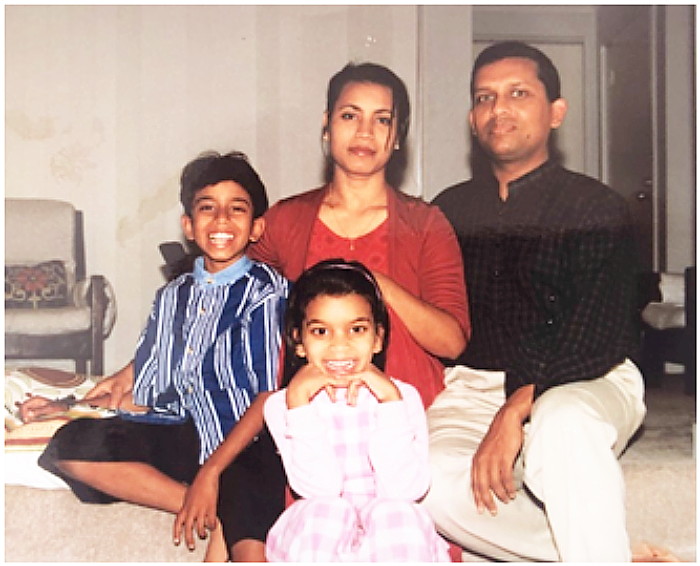 We moved to Brisbane in 1994 when my husband accepted a job offer from the Brisbane City Council. Leaving Melbourne was very hard, however, after enduring it for six long years, escaping Melbourne’s harsh weather was indeed a relief. We loved Brisbane and its weather. Rented a place in one of the western suburbs, Kenmore. Our son Nirjhar was enrolled in a nearby Primary and the daughter Nodi into the Kindergarten. Babu got busy with his work and continued his professional development activities at the Institute of Engineers, Australia. I engaged myself fully in the housewife role and took care of raising our two kids. When Nodi started her school in 1998, I went back to the university to pursue the degree of Bachelor of Education at Brisbane’s Griffith University. Parenting with two cultures I grew up in a strong cultural environment from my childhood. As a result, as soon as we arrived in Melbourne, I got heavily involved in local multi-faceted cultural activities and later, in Brisbane too, I actively participated in different roles with the Bangladesh Association in Brisbane, the Brisbane Bangla School, and the Brisbane Bangla Radio. Given our strong cultural ties, both Babu and I wanted our children to be aware of our heritage and practice our own culture. And at the same time, they needed to be aware of Australian history and culture and learn to respect it. We ensured that both the kids learnt to read and write Bangla at the Brisbane Bangla School, where I was a teacher for a while. They loved reciting Bangla poems, sing Bangla songs, participated in dramas, dance, and other cultural activities. 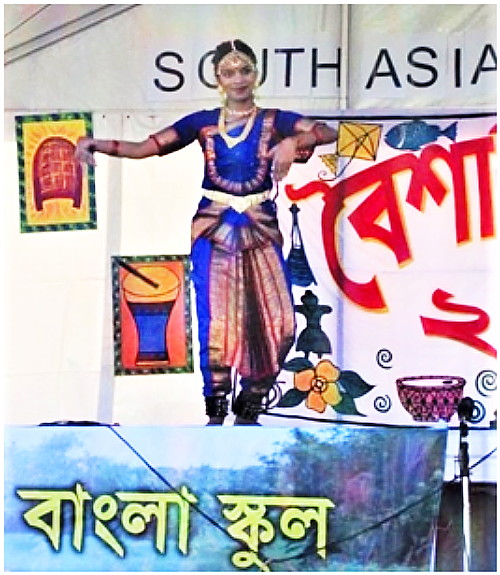 As religion is an integral part of our lives and identity, we taught our two kids to read the holy Quran and perform prayers with us. They also fasted during the month of Ramadan and took part in different charity work regularly. They also loved taking part in different sporting activities like Swimming, Cricket, Soccer and Tennis. All in all, like many other Bangladeshi immigrants, we wished our children to have the best of both worlds. As religion is an integral part of our lives and identity, we taught our two kids to read the holy Quran and perform prayers with us. They also fasted during the month of Ramadan and took part in different charity work regularly. They also loved taking part in different sporting activities like Swimming, Cricket, Soccer and Tennis. All in all, like many other Bangladeshi immigrants, we wished our children to have the best of both worlds.My husband received an attractive job offer from Qatar and moved to Doha in 2009. I stayed back with the children, Nirjhar then 19 and Nodi 14. Both of them at that time was in the public school. We took a concerted decision to send them to public schools based on, firstly, that Public Schools are co-eds and secondly, kids in these schools come from a wide range of socio-economic and cultural background, and the education is provided free. We considered all these factors critical for the growth and intellectual development of our children. Indeed, co-ed and multicultural environment at the public school helped both our kids to overcome gender, class, and ethnicity inhibitions from their infancy. They mingled with girls/boys freely, and over the years they learnt to respect each other, irrespective of their gender, ethnic, cultural, and socio-economic backgrounds. Nirjhar’s progression After his HSC, which he passed with flying colours, Nirjhar decided to study dentistry at the University of Queensland. We never pushed our kids re their educational choices. It had always been completely their likings. However, after completing one semester in dental science, Nirjhar changed his mind and switched to study engineering instead. He found dentistry took up a lot of study hours whereas for engineering he won’t have to study as hard and spend as much time. Also, as he has always been very comfortable with Math and science, he felt engineering would be an easier ride. Most importantly, his philosophy that “life is too short” and so he needed to study a subject that gives him enough spare time to “enjoy life to the fullest rather than spending long hours in studying”, influenced his decision to make that switch. At first, we were a little dismayed thinking how reckless he was but then we thought, back home we rarely had the luxury of doings things that we wished for in our own lives. It was always our parents who decided for us and here, in Australia children have this unique opportunity to choose for themselves. I suppose this freedom of choice helps one attaining one’s full potential in the life to come. We trusted in this and it did work for Nirjhar. He became fairly independent minded from early on. When he was in year 6 in the school, he delivered newspapers and leaflets in the neighborhood. To encourage and support him we even accompanied him in rounds from time to time. While studying engineering at the University of Queensland, he at times used to do three part-time jobs – a cadet in an engineering firm, a helper at a petrol station, and a shop assistant at a pool shop. He saved money from his earnings for his Europe trip that he undertook with his university friends when he was in the final year of engineering. NIrjhar completed his civil engineering degree with one of the best theses that year. His confidence level was so high that before even appearing for his thesis viva exam, he called up the HR department of one of the major construction (BMD-Leighton consortium) and requested an interview for a Cross river tunnel project job in Brisbane. They did call him for an interview and seeing his confidence, offered him a job straightaway, as a site engineer. Our “boy” decides to be a “man” 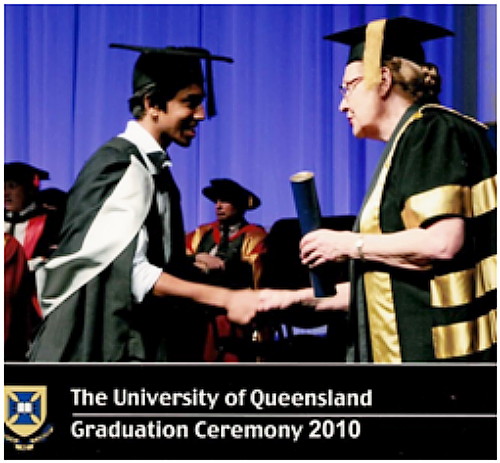 Nirjhar, then 19 years of age, announced one fine morning that he wished to move out to be on his own. It was indeed a sudden shock for me as I never even remotely contemplated that this would ever come, let alone prepare for it. Nirjhar wished to “explore” and find out if he can handle himself independently. He felt that he was too dependent on me and not facing the challenges in the real world. He knew that it will be too hard on me, particularly when his father was way in Qatar. However, I could see in his eyes how much he wanted to take that challenge. I cried but did not stop him. However, I was pleasantly surprised to find later on how quickly he became independent and organized himself in his new home. I was a bit apprehensive at the beginning as to how would our friends and the community would view our son’s leaving home. But I am glad I chose to put my son’s wishes and desire to be an independent man first. Nirjhar, then 19 years of age, announced one fine morning that he wished to move out to be on his own. It was indeed a sudden shock for me as I never even remotely contemplated that this would ever come, let alone prepare for it. Nirjhar wished to “explore” and find out if he can handle himself independently. He felt that he was too dependent on me and not facing the challenges in the real world. He knew that it will be too hard on me, particularly when his father was way in Qatar. However, I could see in his eyes how much he wanted to take that challenge. I cried but did not stop him. However, I was pleasantly surprised to find later on how quickly he became independent and organized himself in his new home. I was a bit apprehensive at the beginning as to how would our friends and the community would view our son’s leaving home. But I am glad I chose to put my son’s wishes and desire to be an independent man first.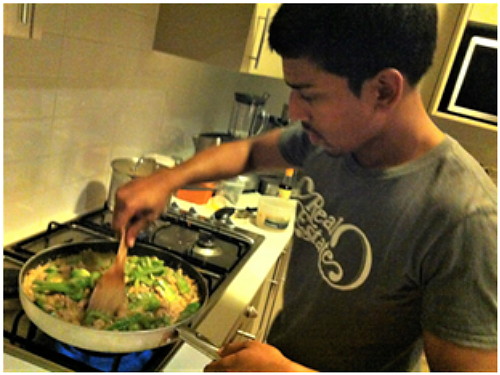 Having worked for more than four years with Leighton-BMD consortium, overseeing building tunnels in Brisbane including Clem Jones and cross river Legacy Tunnel, Nirjhar embarked on his much-aspired world tour in 2015 through South America, Canada, USA and on to Europe. He found a job for himself in the Cross Rail Project in London. From London, he traveled almost all the prime destinations in Europe and the Balkans. Having worked for more than four years with Leighton-BMD consortium, overseeing building tunnels in Brisbane including Clem Jones and cross river Legacy Tunnel, Nirjhar embarked on his much-aspired world tour in 2015 through South America, Canada, USA and on to Europe. He found a job for himself in the Cross Rail Project in London. From London, he traveled almost all the prime destinations in Europe and the Balkans.Quite fortuitously, while in London Nirjhar found the love of his life, Bernadette, an Australian girl from Brisbane who was working as a mathematics teacher in a high school in London. In 2018, they got married in Brisbane. We were happy to see the respect, understanding and love they have for each other. These days, Nirjhar works as a senior Project Manager, Constructions in Brisbane City Council and Bernadette as a high school teacher. They live about 20 minutes’ drive away from our home. Nirjhar and Bernadette are now proud parents of two beautiful girls. 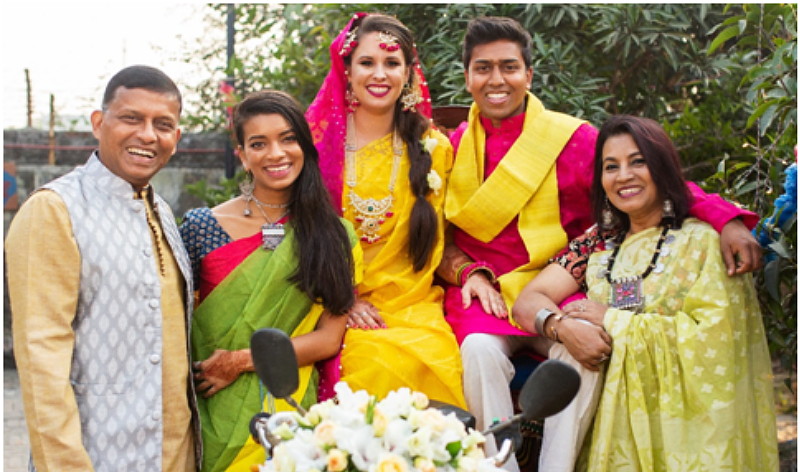 In our culture we take it with certainty that grandparents share the parenting of their grandchildren. But Nirjhar and Bernadette taught us something different. They wanted to raise their children in their own ways, they wanted to go through the process by themselves and did not seek help from either... ... of the grandparents. Nirjhar’s argument was that when Nodi and him were born, as migrants in a different country, we were all by ourselves, and we raised them solely by ourselves in our ways. So why shouldn’t they follow the same path. However, we do have our fair share of time with them and the grandkids every week. We love it the way it is. Nodi, our daughter At 14 while at grade 9, Nodi wished to change school from local Kenmore high to Queensland Academy of Science, Mathematics and Technology. She thought that Kenmore High wasn’t challenging enough for her. Getting into the Queensland Academy was anything but easy. But she made into it and later passed HSC with at the top 1%. She chose to study Psychology at the University of Queensland. However, like her brother, after one semester she also changed her mind and announced; “it’s not me, I want to change to Architecture!” We are glad that we supported her in career choice. She has always been very creative, and Architecture seemed the right move for her. Nodi too pushed her boundaries to the limit. While in year 8, she found herself a job at the Baskin and Robbins. During the Uni years she worked at two part time jobs, in an Architectural firm and a local fruit shop. After long and hard five years she completed her BA in architecture, and continued to work with the same firm as a full-time junior Architect. By 2014, as both the children were fairly grown up and more or less on their own, I moved to Qatar to be with my husband. The fact that from the early years of their life they were given the opportunity to make decision for themselves indeed helped them into their independent living by themselves. Nodi, the explorer 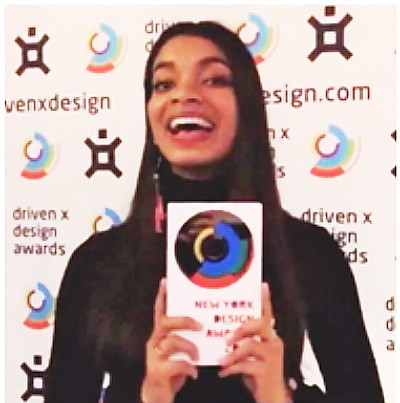 At the age of 22, while working for an Architectural firm in Brisbane, Nodi decides to move to New York! She neither had a job lined up nor had any one to turn to in that big city. Couldn’t be a worse nightmare for parents of such a girl of young at age. However, we hoped that her upbringing as an independent girl from the early on will see her thru. She did struggle a little bit to begin with, but managed pretty well soon. she found a job with an Australian company as a Designer. She designed and project managed more than 25 coffee shops in the New York City and across other US states. She won the “New York Design Award” for designing a coffee shop at the Wall Street. There after she worked for a major American Real Estate company. Sadly, she contracted Covid in 2020 and as a result was out of work and returned to Brisbane and lived with us. At the age of 22, while working for an Architectural firm in Brisbane, Nodi decides to move to New York! She neither had a job lined up nor had any one to turn to in that big city. Couldn’t be a worse nightmare for parents of such a girl of young at age. However, we hoped that her upbringing as an independent girl from the early on will see her thru. She did struggle a little bit to begin with, but managed pretty well soon. she found a job with an Australian company as a Designer. She designed and project managed more than 25 coffee shops in the New York City and across other US states. She won the “New York Design Award” for designing a coffee shop at the Wall Street. There after she worked for a major American Real Estate company. Sadly, she contracted Covid in 2020 and as a result was out of work and returned to Brisbane and lived with us.However, Nodi could never settle back here in Brisbane. Her mind and soul were in New York. Within a year, in mid-2021 she left for New York again. This time she got the Visa as her own design consulting business in New York. We do not know when she may again change her mind. But we are OK with that as we always believed in our children’s passion and desire to reach and far beyond. Meanwhile my husband, Babu took early retirement in 2020 from his job in Qatar and we both returned to Brisbane. Here, we have our own circle of friends, our son, daughter-in-law and our two gorgeous granddaughters. We are indeed happy in our own ways. Babu spends most of his time gardening, reading, and listening to music. I also do quite a bit of reading and writing and most importantly, I am also a practicing counsellor and operate my counselling services from my home-based business, Shosti Counselling. Parenting children in a culturally alien country: take-home lessons Both Babu and I had to constantly adjust to the plans of our children. We never imposed our plan on them. Instead, we supported them to make their own and grow both intellectually and emotionally. This is not to say that we never felt frustrated. We did. Their constant change of plans did frustrate us, but we always trusted and empowered our kids to make their own decisions. In fact, our children taught us that life is more than we ever imagine. While we tried to teach our children and take them on a path that we knew and learned of, they taught us to readjust to new realities. Accordingly, we reshuffled our thoughts to fit theirs, for that we did not want to limit their curiosity nor their capacity with our own inhibitions. After all, our kids are born in another time and in another society. Life for children of immigrant parents can be extremely trying. Constrained by the limitations of our own worldview, pressure that we often put on our children to become “perfect” can destroy their souls. Sure, our pressure can at times, compel them to be the top of the class at school or successful in their professions but the risk of bearing lifelong scar for not being able to pursue what they really wished to, may leave a permanent damage inside and may cause serious mental health issues. As migrant parents it is also important that we teach our children our roots, our culture, our language, and our religion. However, parents need to be aware that once our children are in schools, they are confronted with two cultures – one at home and one at the school and sometimes it becomes difficult for the children to reconcile the two. Children realise that they must act differently at two different locations – one set of behaviour at home and another, outside. Slowly, as the years pass by, they start to adjust and feel comfortable with the world outside and over time, home environment becomes less relevant. Many parents find it difficult to accept these realities and this is a problem. Under social pressure, children often try to make everyone happy, and in the process, they lose their own identities and much worse, confidence. For children born in migrant families or raised in another country, as we are, this process is called ‘Acculturation’ and this is quite daunting. The key to maturity and progression to happy life is the sensitivity to and understanding of acculturation i.e., the shift. We the migrant parents, need to be sensitive to the outside world and exercise a balanced view where, we should be more open to acculturative shift and at the same time, do our best to let our children know their roots, their past and the values that their parents/ancestors grew with and let them choose from options that help them to stand on their own feet and live as proud Australians. In other words, we must encourage our children to take good values from both cultures while ensuring that they mainstream themselves within the larger Australian society and live as proud Australian as well as feel comfortable and remain proud of their own culture and heritage. As migrating parents our philosophy should be, “We are happy when our children are happy”. To conclude and summarise “My Story”, I take the privilege of quoting Kofi Annan, the Former Secretary-General of the United Nations on the issue of People of different religions and cultures: “People of different religions and cultures live side by side in almost every part of the world, and most of us have overlapping identities which unite us with very different groups. We can love what we are, without hating what – and who – we are not. We can thrive in our own tradition, even as we learn from others, and come to respect their teachings. ” Shilpi Rahman, Brisbane, Australia |
